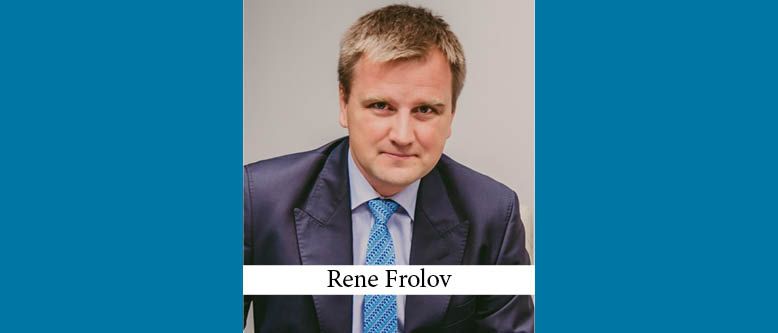Upon reflection, 2018 feels like a year of reversal – the long economic expansion, fueled by quantitative easing by central banks, is losing steam, love for FAANGs and Big Tech turned into techlash, trade wars emerged and escalated, a negotiated divorce between the UK and the EU is descending into a disorderly no-deal Brexit, and so on. There is much to ponder in the short-term. Long-term challenges for the legal profession, however, lie elsewhere.
Many would agree that 2018 saw Legal Tech and AI move from the fringes of the CEE legal scene to the center of operations in the regions’ law firms – the process of employing technology to reduce costs which kicked-off amid the global financial crisis has shifted into a higher gear with ever more resources employed to test applications in legal due diligence, contract drafting, review or automation, legal research and analytics, etc.
And rightly so, as the disruption of legal markets – in CEE as everywhere else – by increasingly sophisticated technology is inevitable. The reasons are well-documented and there to see for all willing to pay attention.
However, our response to this challenge looks lop-sided: the majority of our attention and effort is aimed at addressing structural weaknesses and keeping-up in areas being commoditized. Increased use and nurturing of core strengths are not widely seen as part of the solution, even though skills such as creative problem solving, critical and instinctive thinking, negotiation, and conflict resolution abilities are key qualities during the transformational change brought by the emergence of artificial intelligence.
This is not to say that CEE law firms should cut back investments into cost-reducing or efficiency-boosting technologies. But a more diversified and sophisticated strategy is needed.
Considering the nature of the intelligent technology challenge and its effects on the delivery of legal services (i.e., automating tasks within the legal process), the long-term strategy of our profession, in CEE and elsewhere, should be centered around a move away from being (or being seen as) merely experts – i.e., as tools or resources – to being advisers: critical, creative and resilient users of available tools (including, of course, Legal Tech) to solve problems.
Is that easier said than done? Yes. Is it doable? Absolutely. In fact, there are many ways to be an adviser, not merely an expert – every person and firm can adopt one, or more. Some “ways” are obvious, some less so. I’ll outline two examples to get the discussion going.
First, a world of human-displacing machines and massive job losses is neither imminent nor inevitable: something that leaders will need to get better at explaining to the anxious public. But it is also true that the use of artificial intelligence, blockchain, and so on, is spreading and becoming more sophisticated, and, crucially, looks irreversible. Thus, for AI to flourish and fulfil its promise as an “enabler” rather than a “destroyer,” new rules need to be introduced or, preferably, existing ones adapted. Active participation in this process represents an opportunity not only to remain relevant, but to attract and on-board Generation Z (members of which are seeking more purpose in their work).
Second, 2019 will see the introduction of the EU framework for screening – by Member States and the European Commission – of incoming foreign direct investment by state-owned or -controlled entities into critical infrastructure, technology, or inputs in Europe and, potentially, prohibiting foreign FDIs on security or public order grounds.
Such de jure or de facto pre-closing consent regimes, which evaluate deals for security or public order concerns, have been popping up across Europe for some time – in CEE, Austria, Poland, and Lithuania have introduced one. While these regimes differ in terms of targeted sectors, level of control, origin of investment, and type of investors, they all expose transactions to increased costs, delays, and uncertainty. Worse, as we experienced in Latvia, a government can assume such vetting powers “mid-flight”, i.e. after a deal has been signed, but before it has closed.
The EU framework will not ask Member States to create national FDI screening mechanisms, but history and logic suggests that proliferation of such national regimes will follow regardless. Consequently, we – M&A advisers in CEE – can’t afford to be spectators. Instead, we should actively engage with governments to make sure that local FDI screening regimes (if any) are well-targeted, non-discriminatory, and transparent, and that they avoid unintended overreach or deliberate abuse (e.g., to protect national champions). We must share experiences to anticipate regulatory issues, speak out on bottlenecks to alert authorities to scale-up on resources, and so on.
Doing so will prevent clogging the CEE deal pipeline with unintended hurdles and enhance our ability to anticipate and overcome, in a timely and efficient manner, the ones that remain.
Importantly, it will increase our relevance as agile and valuable advisers in the engine rooms of Europe; not merely substitutable tools in a wider and polarizing market for legal services.
By Rene Frolov, Partner, Fort Legal Estonia
This Article was originally published in Issue 5.12 of the CEE Legal Matters Magazine. If you would like to receive a hard copy of the magazine, you can subscribe here.













